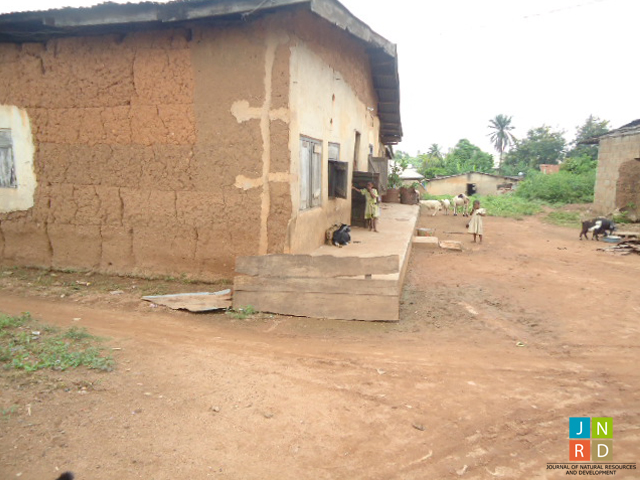Thermal comfort characteristics of some selected building materials in the regional setting of Ile-Ife, Nigeria
Main Article Content
Abstract
In Ile-Ife, it is very common to see quite a lot of local people engaging in mud bricks moulding, concrete block making, mud house construction and the bricklaying profession in general. These have particular bearing on the economy and the political situation of the people involved as in the profession there is set of rules and regulations guiding the rate and procedure for carrying out any such moulding or construction work. Considering the importance of this, the present study investigated the thermal performance of some selected building materials in the ancient city of Ile-Ife in Nigeria. The work demonstrated how a building envelope responds to outdoor conditions through graphic illustrations. This was followed by constructing three physical building models, with model 1 constructed of mud bricks, model 2 constructed of concrete blocks and model 3 constructed of cast concrete. Each of the models was first roofed with galvanised Iron roofing sheets, later with aluminium roofing sheets and finally with asbestos roofing. Readings were taken by inserting TGP-4500 Data loggers into appropriate positions. The results showed that internal temperatures in the mud-brick and cast concrete buildings remained fairly stable despite external diurnal fluctuations. Humidity data collected also showed that fluctuations in external humidity levels do not affect humidity levels within the mud-brick and cast concrete structures significantly. On the other hand, the structure made of concrete blocks responded more to external fluctuations in temperature and humidity. Moreover, humidity levels in the cast concrete building were the least, followed by those in the mud-brick house; while the concrete block structure had the highest level of humidity. It was also discovered that aluminium roofing gave the highest internal temperature, followed by galvanised iron roofing and the least was seen with asbestos roofing. For external diurnal fluctuations, building model 3 with cast concrete gave the most satisfactory performance in terms of thermal comfort; however, building model 1 with mud bricks also gave a satisfactory performance close to that of model 3. The study concludes that building model 1 with mud bricks roofed with Asbestos is the best building model in terms of thermal comfort and affordability. The study also concluded that developing model 1 (mud bricks) in the regional setting of Ile-Ife will go a long way to developing people’s sustainably.
Article Details
Issue
Section

This work is licensed under a Creative Commons Attribution-NonCommercial-NoDerivatives 4.0 International License.

